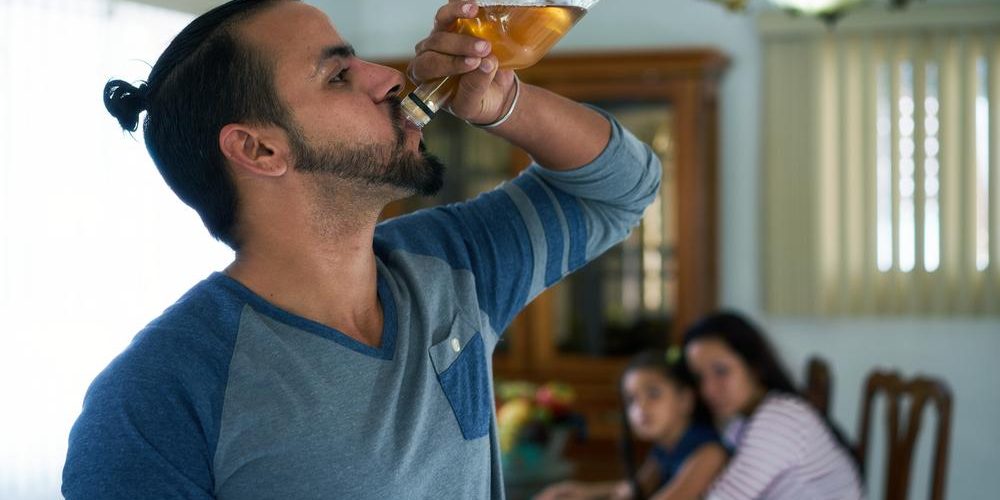The Christmas season ought to bring happiness and reunions, but unfortunately, it can often lead to escalated stress levels, an upsurge in alcohol consumption, and more incidences of domestic abuse. We should be alert for signs that such acts are occurring in order to protect our family members from danger this holiday period.
In this blog post, we examine the connections between alcohol consumption and domestic violence over Christmas time, along with highlighting the challenges faced by victims during these times as well as practical strategies for preventing or supporting those affected. By creating a safer environment at home together, let us make sure everyone enjoys all that comes with the festive celebrations without any fear or harm present.
Key Takeaways
-
Domestic violence and alcohol abuse increase during the holiday season, often due to emotional triggers combined with alcohol consumption.
-
Recognizing signs of escalating abuse is essential for victims to take necessary precautions and seek help.
-
Friends and family can provide support while comprehensive treatment options are available for breaking the cycle of domestic violence.
The Holiday Spike: Understanding the Increase in Domestic Violence and Alcohol Abuse During the Festive Period

The dangers of domestic abuse and alcohol-fueled violence during the festive season are well documented. Intimate partner violence, ranging from physical and psychological control to sexual assault, has been identified as a pressing issue for many individuals and families – with research estimating that 10% to 15% of American women have experienced it at some point. The link between drinking excessive amounts of alcohol and incidents related to this type of cruelty is acknowledged by experts all over the world. Making an understanding of how they interact is ever so important.
Increased stress levels due to financial concerns paired with rampant liquor consumption can greatly increase the risk for victims who may already be facing such circumstances throughout their lives. Only worsening whatever tensions might exist within intimate relationships or partnerships around holiday periods specifically. Domestic violence occurring then serves as a reminder that there needs more safeguarding support available when needed most.
It’s also essential that those knowledgeable about its signs remain conscious so safety protocols will be followed if any evidence indicates increased risk or possible danger against potential sufferers while we celebrate these joyous times ahead. Knowing what leads to partner abuses combined with providing assistance could help form stable foundations in preventing disaster strikes down on vulnerable people across society today.
The Dangerous Mix: Alcohol Consumption and Its Role in Christmas Domestic Abuse

At Christmas, alcohol consumption has a major influence on domestic abuse. Alcohol can reduce sound decision-making and heighten existing tensions, causing higher rates of aggression and violence in the home. It is estimated that 40 to 60% of all cases involving physical or emotional domestic mistreatment have substance misuse as an added factor – highlighting how dangerous it is when both alcohol misuse and abuse are involved together.
The role binge drinking plays in partner violence cannot be denied. Scientific studies reveal excessive drinking raises the possibility for intimate partner maltreatment incidents happening more often than not during this festive season due to factors like gender identity, genetics qualities, mental health concerns, etc., but also with external influences such as one’s blood alcohol content playing its part too.
Recognizing which elements bring about domestic harm must be seen as essential if we want to stop abusive behaviour over Christmastime successfully – so being alert concerning just how much liquor drink alcohol someone consumes (which could involve bingeing) plus looking into feasible treatments would help put us on course towards diminishing violent activities within relationships across households when necessary during these yearly festivities.
Emotional Triggers and Alcohol: A Volatile Combination
Domestic abuse and domestic violence are complex issues, with alcohol often playing an exacerbating role. Victims of such situations may turn to drinking in order to cope due to poor mental health, feeling confined or secluded. If excessive alcohol intake then occurs, the risk increases for emotional triggers (trauma reminders, anxiety, etc.) as well as furthering already existing forms of psychological/emotional abuse. It is paramount that individuals identify these potentiators of conflict around this period if we want reduce any associated dangers surrounding it all involving victims within a family setting and those beyond whom still suffer its impacts on society’s whole level alike – understanding key elements like stressors connected with problematic consumption habits along symptoms tied directly linked towards different states including depression & apprehension will go some way into preventing abusive episodes which could otherwise occur through high amounts being consumed by sufferers overall throughout holiday timescales too .
Navigating an Abusive Relationship During the Holidays
During the holiday season, people suffering from domestic abuse or mental disorders may struggle more than usual. Parental violence during childhood and alcohol dependence are among the risk factors to consider for this type of behavior. It is essential that family members understand how to detect signs of escalating mistreatment in order to put safety strategies into practice and assist those affected by it.
Various means have been established with which victims can access help at any time. Such as websites or hotlines like the National Domestic Abuse Hotline. Resources are available even if you yourself might be responsible for abusing someone else – offering support so there could be a real chance towards change without anyone being left alone facing such problems over Christmas period.
Navigating an abusive relationship throughout these holidays requires recognition of potential risks as well as mental health treatment where necessary—allowing one’s safety while undergoing healing processes peacefully
Recognizing Signs of Escalating Abuse
Recognizing the warning signs of escalating domestic violence is essential for those affected in order to protect themselves. Such symptoms may include physical injuries such as bruises, cuts or broken bones. Ongoing criticism, humiliation or controlling behavior. And coercive measures like isolation, checking up on someone’s activities, manipulating finances and threatening harm. There might be threats involving emotional abuse as well as even sexual violence or abuse too, which can all point towards an abusive relationship. Knowing these signs allows victims to take proactive steps towards their safety and get help when needed.
Strategies for Victims to Stay Safe
For victims of domestic abuse, the holidays may not be a cause for celebration. To stay safe during this time, they can create a safety plan with emergency contact details and listing potential refuge locations, draw support from reliable family members or friends, as well as be aware of accessible resources in case of an urgent situation. When opening up to confidants about their experience with violence/abuse, it is important that precautions are taken such as choosing the right moment to communicate worries and researching options thoroughly ahead. These steps towards security will provide those affected by harm some sense of protection over holiday season – self-care strategies should also feature within any plans made too!
Intimate Partner Violence Among Different Demographics
Intimate partner violence can be found in all demographic categories, though women, LGBTQ+ individuals and those with substance abuse challenges may face higher risks. Parental exposure to physical assault combined with alcohol consumption are often linked as risk factors for the issue. It is thought that when a woman suffers from every form of the intimate partner abuse and violence, her likelihood of battling alcoholism also increases.
Significant indications of this kind of domestic mistreatment among female partners might include lacking faith in one’s feelings and intuition. Difficulty coming to terms with their relationship is abusive plus similar signs experienced by same-sex partnerships alike suffer too.
By being familiarized with these varying cases it helps implement targeted interventions more efficiently while providing necessary assistance where required so each person affected has an appropriate support system established around them. Acknowledging diverse experiences relating to intimate partner violence brings greater awareness which allows people suffering or at threat to receive needed empathy via inclusion within society – concerned about who they really are.
The Role of Friends and Family: How to Spot and Support Loved One
Friends and relatives can be extremely useful in identifying and assisting people who have been subjected to domestic abuse. In order for the conversation with a victim to go smoothly, selecting an appropriate time or place is important while maintaining a supportive attitude towards them without any judgement involved. Asking questions that are open-ended along with validating their emotions alongside respecting decisions made by them should also be kept in mind during this process.
There are various steps family members/friends may take when it comes offering support such as: really listening to what they have experienced without prejudice present, providing emotional aid & reassurance at all times ,advising professional help if needed – helping devise plans of safety according choosing suitable paths available, continually being connected via contact whilst themselves educating on topics concerning violence perpetrated against individuals within relationships together stand linked types abuses victims suffer from thus contributing beneficially enabling those affected obtaining desired levels security healing requires so desperately requested carries immense significance positive results eventually achieved .
Breaking the Cycle: Treatment Options and Recovery Support
It is possible to break the pattern of domestic violence and alcohol abuse by providing comprehensive treatment which includes therapy, support groups, and identification of underlying problems. Effective approaches for addressing alcohol addiction and related domestic violence include addiction rehabilitation programs, counseling services such as couples or family therapy. Legal methods can also be utilized like restraining orders plus civil protection orders.
Group work in particular offers a safe environment that allows individuals to share their experiences while learning from others how to develop healthier coping techniques with regard to this issue. It has an important role within breaking these cycles since it provides an atmosphere conducive to growth through insight sharing and understanding amongst participants who have gone through similar situations. Addressing the origins of both types of abuses coupled with offering options when it comes down treatments could make sure everybody is kept safer whilst creating more supportive contexts without any kind of physical aggression or consumption issues harming mental health problems those involved.
Legal Protections and Resources: Safeguarding Victims Over the Christmas Period

For domestic abuse victims, legal protections and resources can help provide safety over the Christmas period. This includes restraining orders such as Domestic Abuse Protection Notices (DAPN), which offer immediate protection to those in need of assistance. For these actions to be taken during this special time, it is necessary for individuals to follow procedures that are outlined by law- with advice from a professional preferred before proceeding further. Services like NHS, DVACT, Women’s Aid and LGA all have programmes available throughout the festive season intended to aid victims who may feel threatened or unsafe due to familiar violence/abuse patterns rising at christmas against them. The understanding of how much leverage accessible services present gives people the ability to take active steps towards getting better protected -not only right now, but also beyond.
Summary
During the Christmas period, domestic abuse and alcohol-fueled violence remain an urgent problem that needs attention from us all. We can protect ourselves as well as our family by being cognizant of factors that result in this spike of the reported domestic violence and aggression at holiday times, acknowledging signs indicating escalating hostility, and practicing safety measures.
We should remember to view the festive season with delight. Joyfulness abounds, if we come together to prevent occasions involving maltreatment or intoxication connected bodily harm then everyone will benefit now into the years ahead.
Frequently Asked Questions
What are the main factors contributing to the increase in domestic violence during the Christmas period?
Over the Christmas season, a notable surge in domestic violence is being attributed to higher levels of stress, financial concerns and alcohol consumption. This greater prevalence of domestic violence cases has been linked directly with alcoholic beverages during this time period.
How does alcohol consumption exacerbate domestic violence during the holidays?
During the holidays, excessive alcohol intake and consumption can lead to a decrease in judgment and an increase in aggressive behavior, two factors that can bring about a rise in domestic violence incidents. Drinking too much is therefore directly linked to acts of violence at home.
What strategies can victims of domestic abuse use to stay safe during the festive period?
Creating a safety plan, seeking support from trusted friends or family, and knowing emergency resources are important strategies for victims of domestic abuse to stay safe during the festive period.
How can friends and family help spot and support loved ones experiencing domestic abuse?
Loved ones can recognize signs withdrawal symptoms of domestic abuse by being mindful, showing support without judgment and helping those suffering seek the assistance they need.
What legal protections and resources are available for victims of domestic violence during the Christmas period?
Victims of domestic abuse and violence have access to legal support such as abuse protection notices, orders, and NHS services provided by DVACT or LGA during the holiday season. Organizations like Women’s Day are like organizations like Women’s Day. Aid is available with vital assistance for victims of domestic abuse cases, over the Christmas period.







